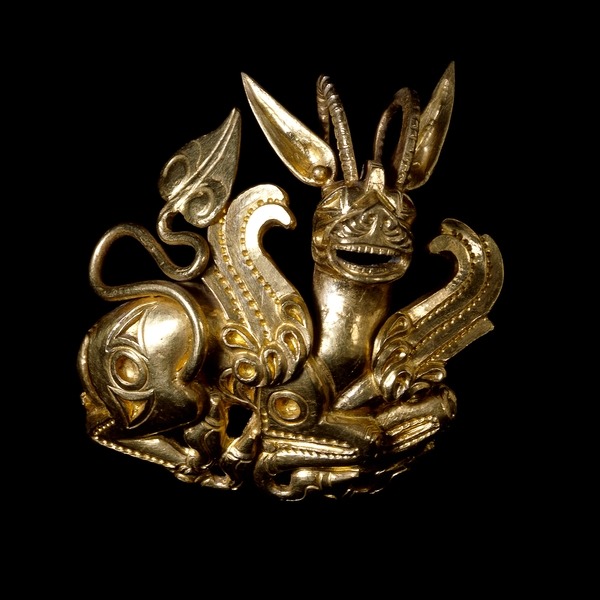
Embossed ornament in the form of a lion-griffin, from the Oxus treasure
Achaemenid Persian, 5th-4th century BC
From the region of Takht-i Kuwad, Tadjikistan
This embossed ornament is part of the Oxus treasure, the most important collection of silver and gold to have survived from the Achaemenid period. The treasure is from a temple and dates mainly from the fifth and fourth centuries BC.
This piece, in the shape of a winged stag with a horned lion’s head, is decorated with hollows for inlay. There are two long pins at the back for attachment, though it is unclear what the ornament originally decorated.
This composite creature reflects the ‘Animal Style’ of South Russia and demonstrates the close relations between the Persians and the nomadic people of the northern steppe lands. The Persian kings had indirect access to the wealth and artistic traditions of northern Central Asia and Siberia, and some contacts are illustrated by this piece.
Source: The British Museum
No comments:
Post a Comment